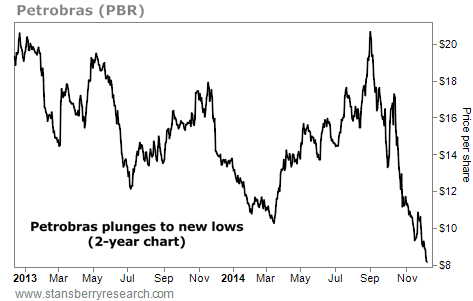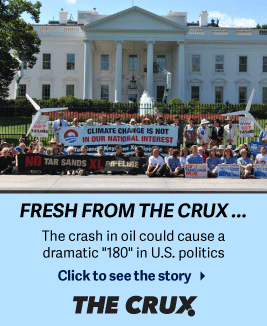| Home | About Us | Resources | Archive | Free Reports | Market Window |
This Man's New NO-FEE Fund Will Disrupt the Investment IndustryBy
Thursday, December 11, 2014
Yesterday, my friend Mebane Faber launched a new fund...
It is the first exchange-traded fund (ETF) with a permanent management fee of zero percent.
Yes, that means what you think it means – he is not getting paid.
Why would he do such a thing? More on that in a minute.
More importantly, what does this fund do? And should you be interested in owning it?
I spoke with Meb about it...
"For my whole career, I've heard friends and family wish there was just one really simple way to invest... You just write one check and buy one investment... You can just set it and forget it."
"One of my goals was to deliver a product like that, with the lowest fees possible. This was really designed to meet the needs of friends and family that are not investing pros – folks that don't have any interest in following the markets. To limit their risk, I created a product that is diversified across a broad number of countries and asset classes."
Meb's new fund is called the Cambria Global Asset Allocation Fund (GAA).
GAA holds a diversified portfolio of global investments, by holding roughly 30 ETFs. In addition to holding ETFs on stock markets and bond markets, Meb's portfolio holds commodities ETFs, real estate ETFs, inflation-indexed ETFs, and more. (When you add it up, the roughly 30 ETFs hold over 20,000 investments, so you are definitely diversified!!!)
Meb's life's work has been about optimizing asset allocation – figuring out how to minimize risk and maximize returns.
Why isn't Meb charging anything? "This is basically a buy-and-hold portfolio," he said. "I might go a year or two before rebalancing the holdings. You don't need to pay me for not doing too much."
While Meb isn't charging you anything, if you look closely, you'll see that there is sort of a "pass-through" expense ratio... You see, the underlying ETFs that GAA holds have an expense ratio of 0.29%... So by looking "through" GAA to the expense ratio of the underlying ETFs it holds, you are ultimately paying an expense ratio of 0.29%. (To be clear, again, Meb is not charging this, or anything.)
For comparison, the average mutual fund charges 1.25%, and the average ETF charges 0.6%.
Fund giant Vanguard does offer ETFs with lower expense ratios than Meb's 0.29%. The thing is, Vanguard requires you to make your own asset allocation decisions on their ETFs – you'd have to choose how much to hold in stocks and bonds. That's the problem that Meb wanted to solve for friends and family with GAA.
If you are an active trader, or like to manage your investing allocation yourself, then this fund is not for you. However, if you or someone you know is looking for a widely diversified, set-it-and-forget portfolio in one ETF – then point them in the direction of GAA.
I applaud Meb for putting out the first-ever ETF with a management fee of zero percent. (For a few technical reasons, he could end up not losing money on this fund if it gets big enough.)
This bold business model could entirely disrupt the fund management industry as we know it – for the benefit of individual investors.
Again, if you know someone just looking for a one-stock, set-it-and-forget-it trade, tell him to consider GAA. For more on GAA, visit www.cambriafunds.com/gaa.
Good investing,
Steve
Further Reading:
Find more of Meb's simple, powerful investment ideas right here:
How to Buy the NEAR-PERFECT Portfolio... With One Click
"It's a simple strategy... one that has delivered 10%-plus compound annual gains for four decades." A Simple Way to Beat the Market, Year After Year
"Most folks think you have to reinvent the wheel to beat the market... They're wrong." Market NotesWHAT HAPPENS IF OIL FALLS? THIS... Today's chart shows it has been a rough time for folks that ignored our Petrobras warning...
Over the past few years, we've written several commentaries on how silly it is to make long-term investments in "state owned" companies... especially ones headquartered in foreign countries with traditions of fiscal mismanagement. You're better off partnering with a crack addict than with your average group of bureaucrats.
As we discussed many times, the poster child for state-owned investment is Brazilian oil firm Petrobras. It operates with heavy involvement from that model of logic and fiscal sobriety, the Latin American political regime.
In one warning, we noted that Petrobras shares were falling in a robust oil price environment. We then asked, "What happens to this dog if oil actually falls?" The chart below provides the answer.
In the past six months, global oil prices have fallen 39%. This has helped send Petrobras plunging to multiyear lows. It's another lesson on the danger of "state-owned" investing.
 |
Recent Articles
|



